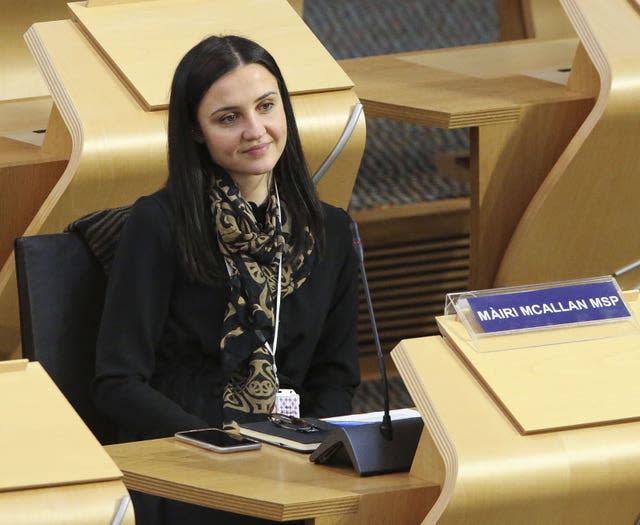Consultation launched on banning sale of peat in Scotland
Ministers have launched a consultation as they prepare to ban the sale of peat in Scotland.
Under the plans, the retail sale of peat for home gardens will be prohibited first, before consideration is given to how a wider ban would impact businesses.
The Scottish Government is therefore seeking the views of gardeners and commercial growers as it prepares to escalate efforts to protect peatlands and the wider environment.
Views are also sought from those in the industry who extract or supply peat and other users such as the fuel and whisky industries.
Peat, which is most commonly used for horticulture, releases carbon when it is extracted.
But in an effort to capitalise on the climate benefits of peat, Scottish ministers plan to prioritise its restoration.
Environment minister Mairi McAllan said consultation responses will inform the plan and timescales for moving away from using peat products.
She said: “Peatlands are an integral part of our cultural and natural heritage and cover over a third of Scotland’s land area.
“In good condition, they help mitigate climate change and can support communities with green jobs.
“In poor condition, though, the benefits are lost and peatlands become a source of carbon emissions.
“Restoring Scotland’s peatlands can help us fight climate change, support biodiversity and provide good, green jobs – often in rural communities.

“This is why we have invested £250 million to restore 250,000 hectares of peatlands over a 10-year period to 2030.
“Hand in hand with our efforts to restore degraded peatlands, we must also do all we can to protect them. This means we must consider how to stop using peat, whether extracted in Scotland or elsewhere.”
In Scotland, a small area of peatland, roughly between one and 2,000 hectares from a total peatland area of over two million, is used for commercial peat extraction, typically for horticulture and a small amount for fuel and 1% for the malting process in whisky production.
Raoul Curtis-Machin, director of horticulture at Royal Botanic Garden in Edinburgh (RBGE), said: “The use of peat by gardeners now needs to be seriously challenged, when healthy non-degraded peat bogs in Scotland are critical to our fight against climate change and are immensely valuable for biodiversity.
“The RBGE is dedicated to plant conservation and stopped using peat more than 20 years ago, with no negative impacts on our world-class horticulture.
“Materials like milled pine bark and other fibrous woody material have proved to be a successful alternative to peat, even for the most challenging plants.”

 Yahoo Finance
Yahoo Finance 